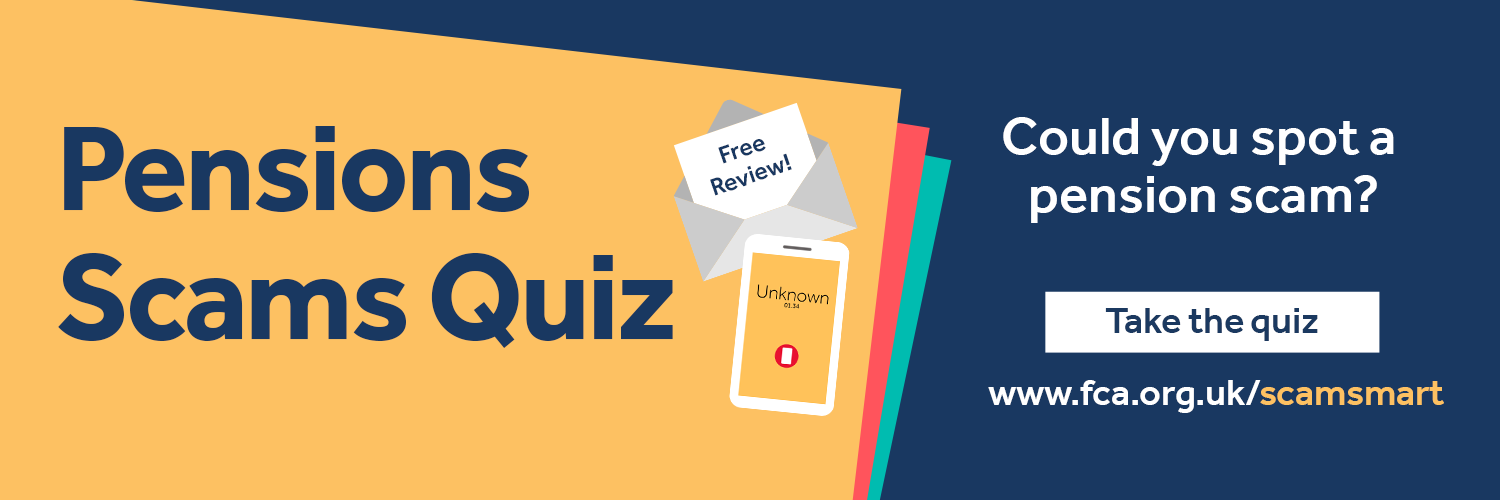Pension Scams
Protect your pension from scams and fraudsters
Pension scams can be very sophisticated and often provide information which looks like it comes from professional, legitimate organisations.
According to analysis from the Pensions Scams Action Group, pension scheme members aged 50 to 69 are particularly vulnerable to scams, with 55% of reported victims between October 2024 and March 2025 falling within this age group.
Pauline, a children’s Critical Care Nurse, lost her £45,000 pension when she was tricked by scammers.
What have I done? What have I done? I'd willingly handed over these pensions. I'd signed. I received a text asking me “Did I have any inactive pensions? Would I like to reinvest them so I would get a better return?” And for doing this, I would receive a gift. So I phoned the company that had texted me. I spoke to a man and he was very pleasant, totally believable. I didn't see any red flags at that time. I did receive a pack from the people I was investing with, very well made. Why would I not believe this? I was offered 10% of whatever my pension was worth as value back to me as a gift. I couldn't complain; it came back to me in time. It was as it was explained on the phone, so everything as far as I was concerned was in place. I was devastated. It's £45,000; I'm never going to get that back again. It is a very real crime and there are victims, and we do pay the price. I feel that the criminals have taken away my retirement. I can't see it in my near future.Read the transcript
Three actions you can take to keep your pension safe
-
Be cautious
A legitimate financial adviser or pension provider will never contact you out of the blue to offer a pension review or to sell you an alternative investment opportunity. Be wary of cold calls, phishing emails and high-pressure sales tactics such as limited time offers.
-
Stay protected
Make sure you’re using strong passwords for your online accounts and keep them confidential. Use two-factor authentication where it is available. Recent research from the Pension Scams Action Group shows that one third of scams reported between October 2024 and March 2025 involved exploiting security vulnerabilities to gain unauthorised access to members’ accounts. Keep your devices and browsers up to date so that you have the latest software to guard against attacks.
-
Know your pension
Understanding how your pension works will help you detect a suspicious offer. Generally, you can only take money from your pension when you’re 55 or over (rising to 57 from April 2028).
For more information about how your Vodafone Group Pension works, visit the Your DB Pension page. For more detailed information on protecting yourself from a scam read the Steps to Stay Scam Safe leaflet and visit the Stop! Think Fraud website.
If you think you’ve been scammed
If you’ve given your bank account details to a firm you think may be operating a scam, tell your bank immediately.
If you've agreed to transfer your pension and now suspect a scam, contact Aon straight away. They may be able to stop a transfer that hasn't taken place yet. If a transfer has already taken place, it's highly unlikely that you will be able to get your money back and you may never see it again.
You can report the firm or scam to the FCA on 0800 111 6768 or by using their reporting form.
The Trustee’s commitment to you
Vodafone and the THUS Group plc Pension Scheme (THUS) Trustee will always work to keep your pension safe. The Trustee has the power to refuse pension transfers where there is a heightened risk that it might be part of a scam.
The THUS Trustee is also proud to have committed to The Pensions Regulator’s ‘Pledge to Combat Pension Scams’. This means that the Trustee will take further actions to protect you and your THUS benefits, including regularly warning you about pension scams and reporting suspected scams to the authorities. To find out more about the Pledge, visit The Pensions Regulator’s website.
Transferring your benefits
The pension you have in THUS is what is known as a defined benefit (DB). DB pensions can be very valuable.
You can move your benefits from THUS to another registered pension scheme, but the Financial Conduct Authority (FCA) and The Pensions Regulator (TPR) believe that most people will benefit more from keeping their DB pension. If your benefits are worth more than £30,000 you are required, by law, to take independent financial advice before transferring them out of THUS.
You can find an Independent Financial Adviser at Unbiased.
How ScamSmart are you?
